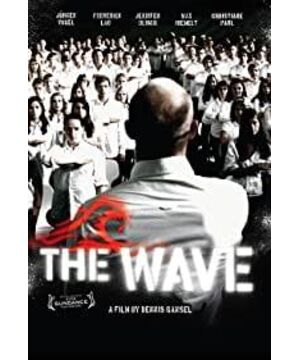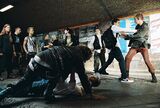One detail in the film struck me: When naming the group, the heroine insisted on using the name "Changers."
Judging from the movie, in fact, the "wave" movement is a mini-version of non-Pareto reform in reality. That is, a social change in which some people benefit and some people lose. Although the wave movement in the film did not cause the transfer of wealth resources, it had an impact on the status of individuals in the group (class). We can clearly see the different roles that different students play in the movement, and the different responses they take. "Here"----the one who has been acting with the heroine, withdraws from the reform at the beginning, and also loses the social status within the group. The "Observer" - the heroine, takes a neutral attitude in the change, and turns to be a heretic when the vested interests are lost. "The Zealot"-----the idiot who drinks the bullet at the end, in the film, he is the lowest in the class and has been seeking protection. In the midst of the change, he immediately gained an unprecedented sense of identity and status. At the end of the reform, he lost the most interests, so he could only commit suicide in anger. In addition to the first three, there is also the "mass" who are the majority, who are both obedient and conformist, and are the subject of manipulation.
Hehe, I've written so much at once, it seems like I'm chasing the wind, but this is how I feel.
View more about The Wave reviews











